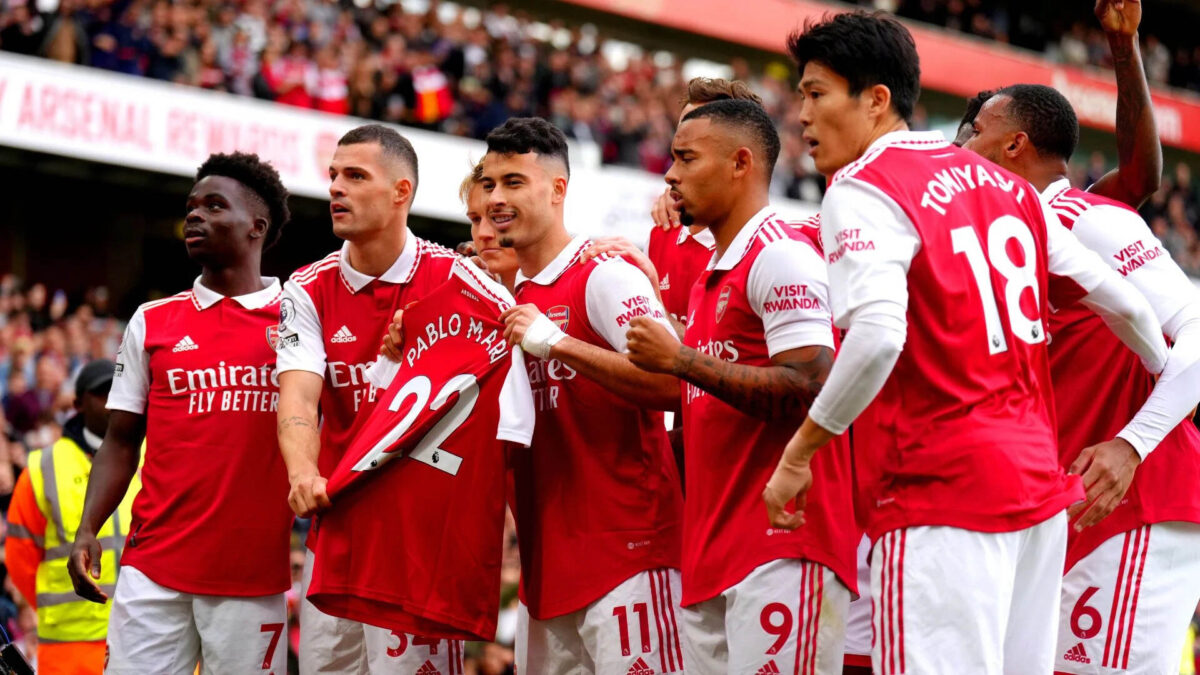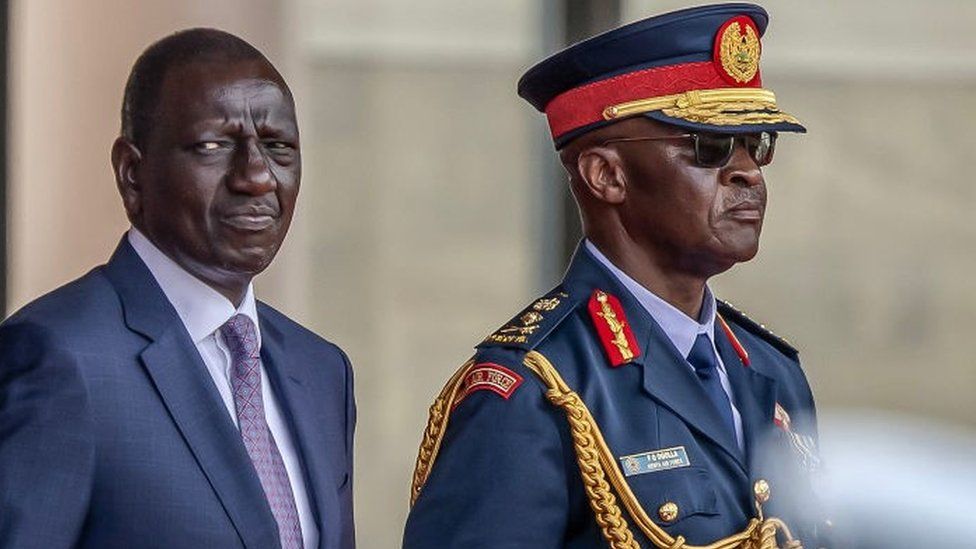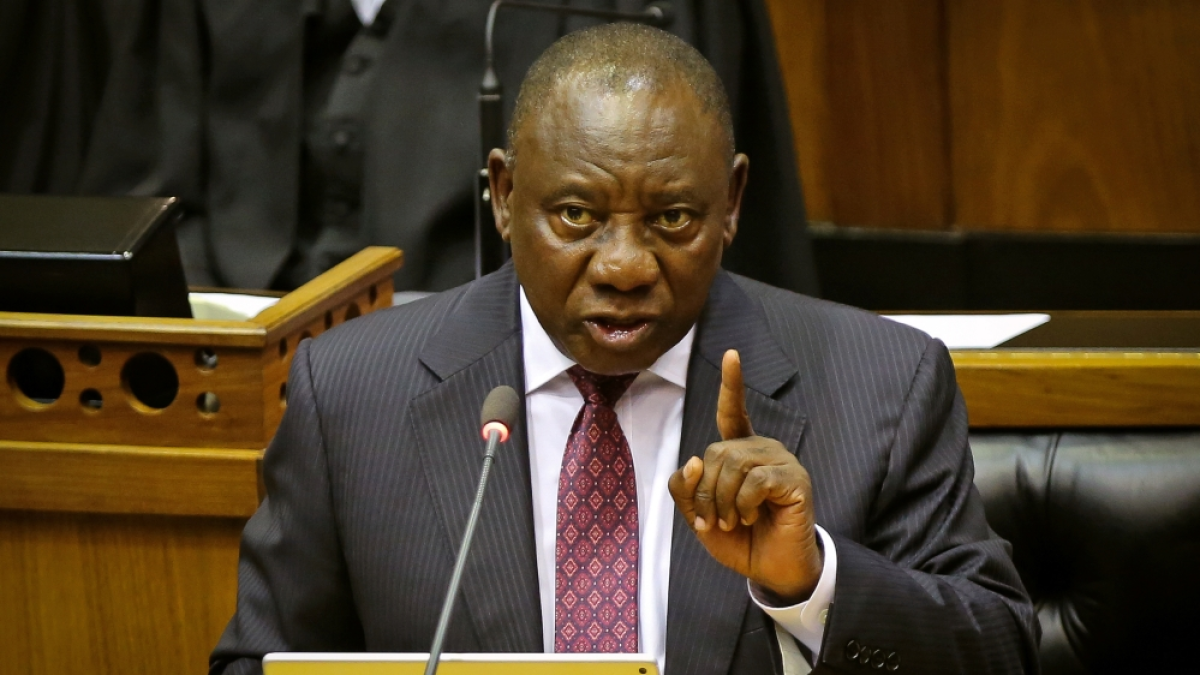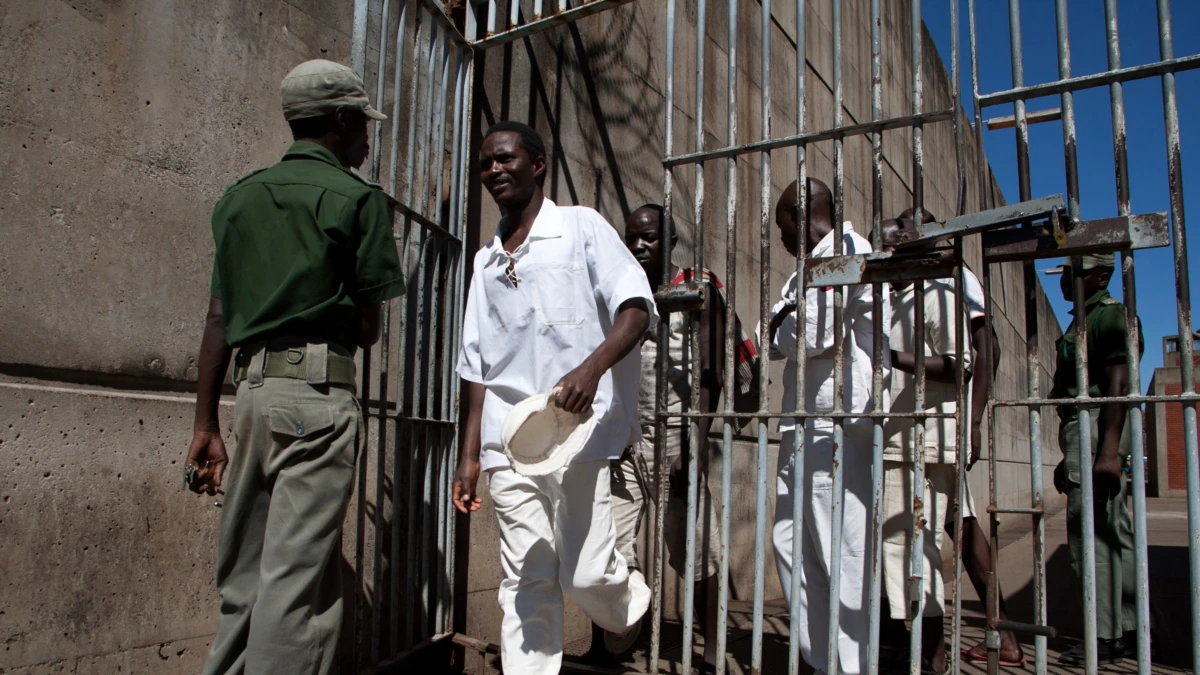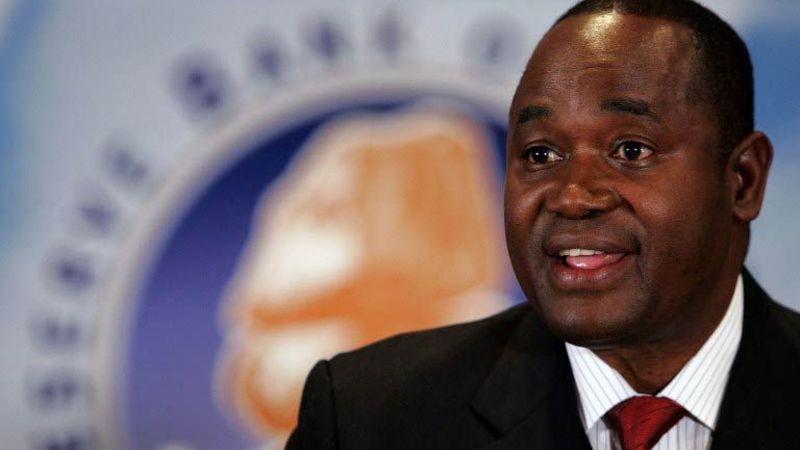HARARE – Robert Mugabe died a “sad man”, his nephew told a state funeral service attended by two dozen current and retired foreign leaders in Harare on Saturday.
Walter Chidakwa fought back tears as he reflected on the former Zimbabwe president’s final days which were coloured by bitterness against his former deputy Emmerson Mnangagwa, the man who conspired to topple him with the help of army generals in 2017.
Mnangagwa spoke at Saturday’s service describing Mugabe as a “hero”, but he offered no apology for the coup which Mugabe’s family says took a toll on his health leading to his death in a hospital in Singapore on September 6 at the age of 95.
“Towards the end of his life, he was a sad man. Sad, sad, sad man. He recalled quietly the journey that he had walked. A profound journey, a hard and excruciating journey,” Chadakwa said.
Mnangagwa told Mugabe’s widow, Grace, that she would “continue to have my support”, but offered no window into his strained relationship with Mugabe which he took no visible steps to repair.
Mnangagwa said “Africa weeps, is grieving over the loss of a true Pan-African hero… a visionary and champion of our empowerment.”
Mnangagwa’s Zanu PF party labelled Mugabe a “traitor” and a “sell-out” when he backed opposition rival Nelson Chamisa in elections last year. On Saturday, Mnangagwa blamed others, unnamed, for “falsely framing Cde Mugabe, giving him false names, routinely and systematically vilifying him.”
He hailed Mugabe’s policy of land redistribution. Zimbabwe would not renegotiate on its land, describing the programme as “complete and finished”.
South Africa’s Cyril Ramaphosa, Kenyan leader Uhuru Kenyatta, former Namibian President Sam Nujoma and Jerry Rawlings who was president of Ghana for 12 years were among the speakers.

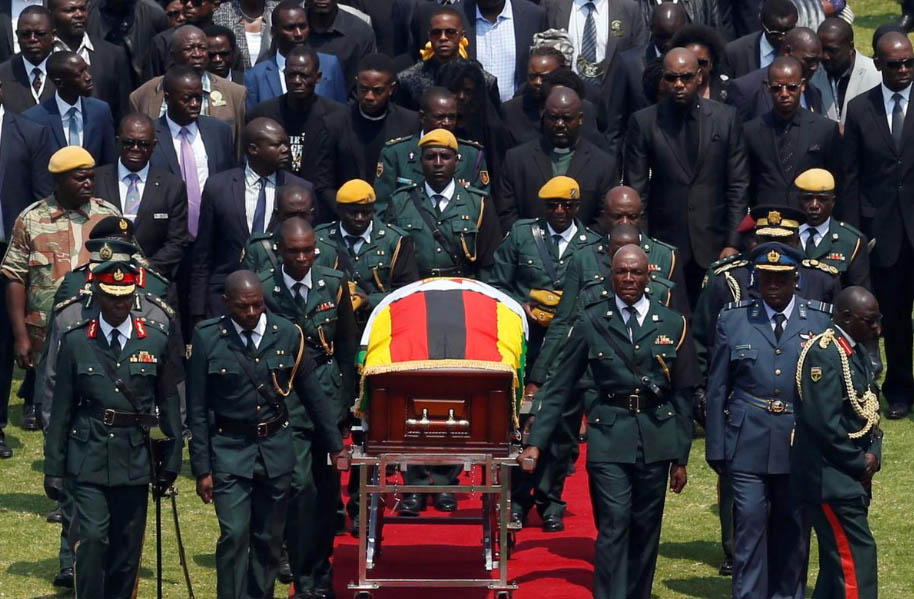
Mugabe, who led Zimbabwe for 37 years from independence, was a “pan-Africanist and a great icon of African liberation,” said Kenyatta, who along with former Zambian leader Kenneth Kaunda got the loudest cheer.
“He was a visionary leader and a relentless champion of African dignity… an embodiment of the pan-African spirit, offering immeasurable assistance and solidarity to other countries,” Kenyatta said in his tribute.
The Kenyan leader said Mugabe was an “intellectual giant, firm and steadfast regarding Africa’s quest to address the challenges facing the African continent.”
“He spent a lifetime challenging Africa to find its space and voice in the community of nations and remained faithful to this calling until his last breath,” Kenyata continued.
Mugabe had championed the “ownership and prudent utilisation of African resources for the benefit of African people”, Kenyatta said as he urged African leaders to “continue to champion African interests as an endearing tribute to comrade Mugabe.”
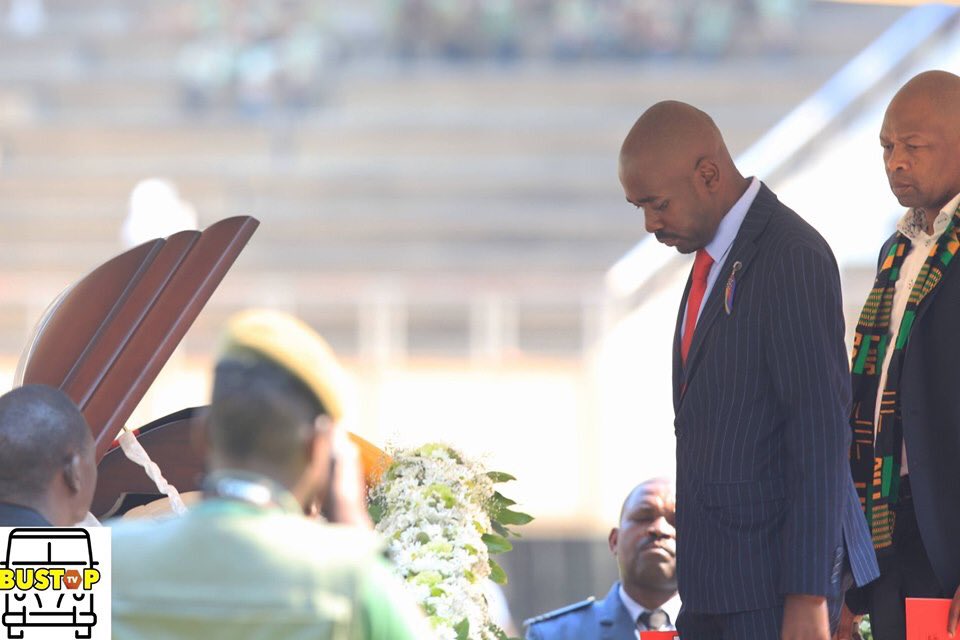
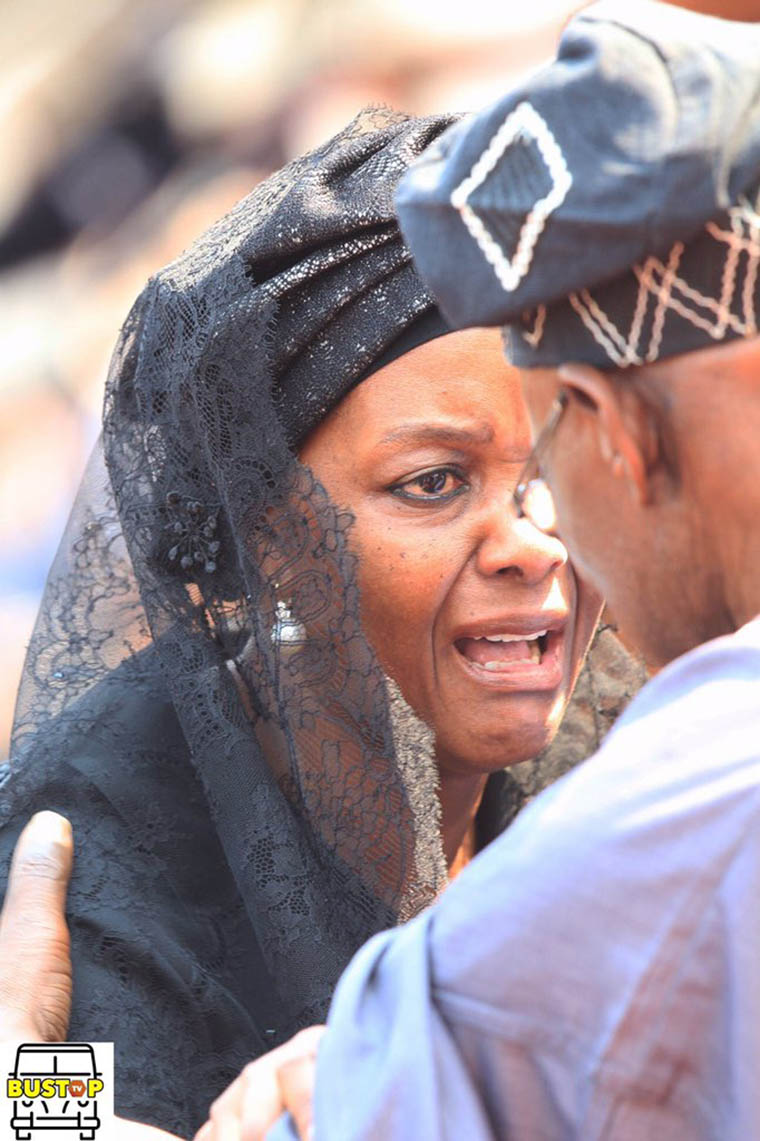
Mugabe’s first wife, Sally, was from Ghana, which sent its former president Rawlings.
Mugabe was “one of the most formidable warriors on this continent”, Rawlings said, as he paid tribute to “one of our continent’s most inspiring liberation fighters.”
“He was not only a liberation fighter and a teacher, but most of all, most of all, an impressive moral compass,” Rawlings said.
Mugabe was noted for his “eloquent speeches” and “never lost his oratory skills and sharpness of wit” right till the end, Rawlings said.
Mugabe’s stance against colonialism and his policy of land redistribution “earned him the wrath of foreign interests” who are “responsible for destabilising progressive African leaders,” he added.
“He was a pioneer of black assertiveness and an impeccable opponent of neo-colonialism,” said Rawlings who ruled Ghana from 1981 until 1993.

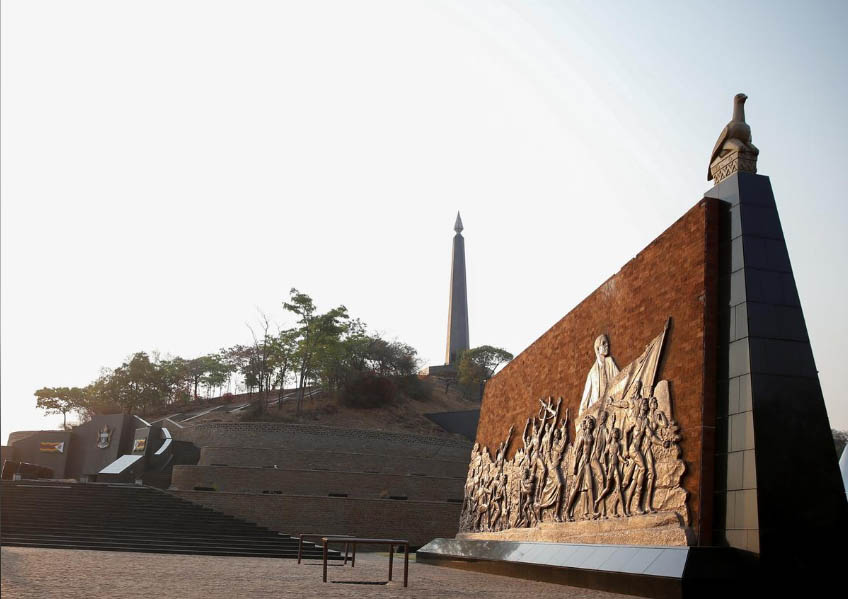
Mugabe’s body will be taken to his rural home in Zvimba on Sunday before it is returned to Harare before interment in a mausoleum at the National Heroes Acre in about 30 days, his nephew Leo Mugabe said on Friday.
Mnangagwa said late on Friday that building the mausoleum would delay the burial of the man who was once his mentor.
On Saturday, Mnangagwa walked behind the casket carrying Mugabe’s body as it was wheeled into the centre of the National Sports Stadium and placed on a podium decorated with flowers so that ordinary Zimbabweans could say their farewells. Senior army generals and Mugabe’s wife and children followed, as a brass band played.
Banners at the stadium read “Hamba kahle, Gushungo,” (go well, Gushungo)”, a reference to his clan name, and “Pioneer of nationalist politics”.
Cleo Mapuranga, a caterer, said: “I feel low because Mugabe fought for us. I remember him for land to the blacks, economic freedom and higher education which was non-racial.
“Now, people are suffering. No-one is controlling the prices in the shops. Our finance minister is trying to implement first-world policies which don’t work in third-world countries.”
Mugabe’s death has made some Zimbabweans question what Mnangagwa has achieved in his two years in power.
His government has taken steps to cut the budget deficit, remove subsidies on fuel and power and repeal laws curbing public and media freedoms, but those reforms and austerity measures have compounded ordinary people’s hardships.
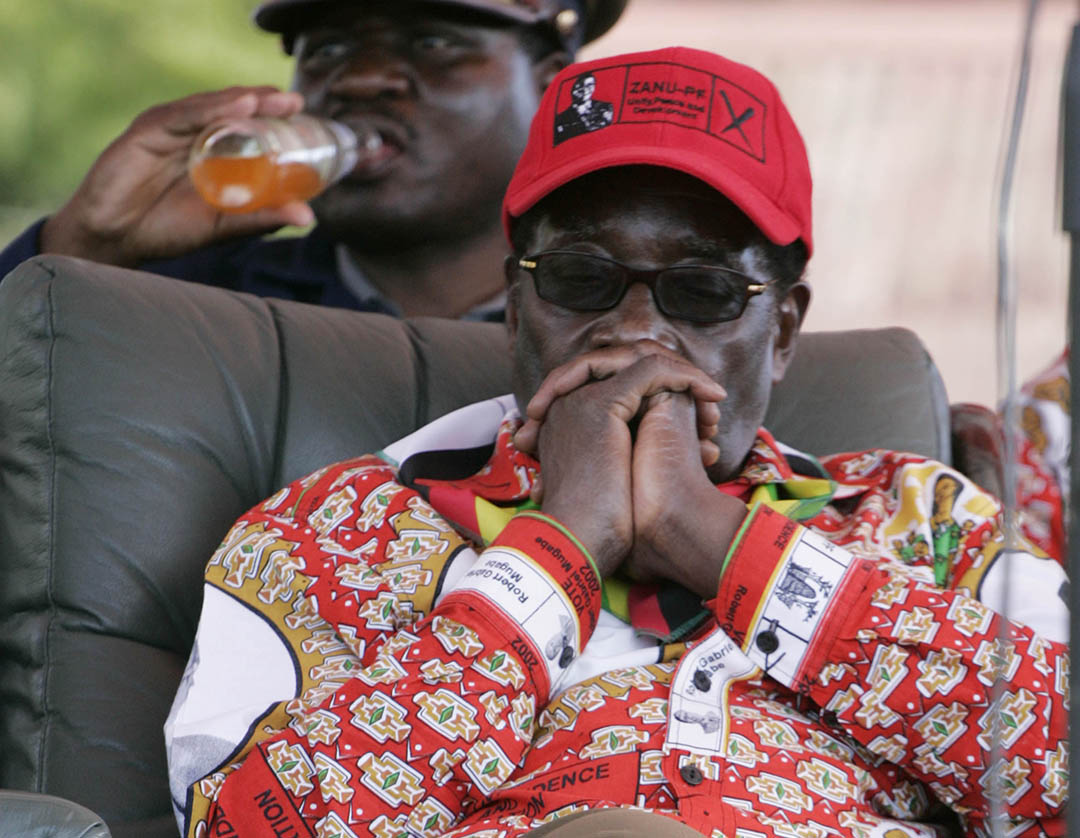
Mugabe was feted as a champion of racial reconciliation when he came to power in 1980 in one of the last African states to throw off white colonial rule.
By the time he was toppled in 2017 to wild celebrations across the country of 13 million, he was viewed by many at home and abroad as a power-obsessed autocrat who unleashed death squads, rigged elections and ruined the economy to keep control.
Chinese leader Xi Jingpin said “Chinese people had been deprived of an old and good friend,” in a message read on his behalf by a special envoy.


